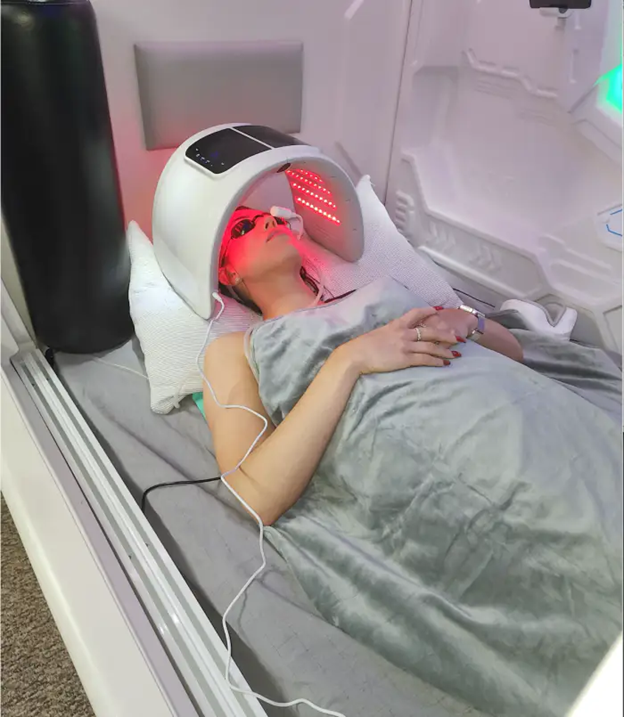
Combating cancer is not less than achievement. But, do you know, it can change your way of life forever? You may lose your bladder control, and your sexual life may witness a significant change and much more. But hold on, you can do a variety of things before and after prostate cancer treatment to minimize the risk of complications.
Read the blog further to know what changes you can expect from prostate cancer treatment, and what you can do about it.
Table of Contents
How Your Life Can Change?
Your life may change in numerous ways after prostate cancer treatment, including:
Urinary Incontinence
Prostate cancer and its treatment make several men lose their bladder control. You may feel a frequent urge to go to the bathroom almost all the time, unable to go when you have to, weak flow, or leakage between the trips to the bathroom. This problem is called urinary incontinence, and this side effect usually recovers soon after your prostate cancer treatment. But in some cases, it may last for several days. In either way, you possess the ability to take control over the problem.
What Can you do?
Consider the following tips:
- Consult your doctor and get the right medications prescribed.
- Try kegel exercises. These exercises help strengthen your pelvic floor muscles and improve your bladder control. You can start doing Kegels even before the prostate cancer treatment to prevent urinary incontinence. If you don’t know how to do kegel exercises, you can ask your healthcare provider.
- If the problem becomes severe, you can opt to wear adult diapers to catch the leaks.
- Ask your doctor if you can use condom catheters.
- Surgery can also be done to fix your urinary incontinence. There are different types of surgeries, and the doctor will recommend one depending upon the underlying cause of your problem.
Changes to Your Sex Life
Your sex life may change after you have received treatment for prostate gland removal. It implies you may have trouble getting or maintaining erections (erectile dysfunction), inability to ejaculate, inability to attain orgasm – all these risks are possible after an operation or if you have undergone radiation therapy.
You need to work with your doctor to eliminate those risks. Start by inquiring about nerve-sparing surgery and more accurate radiation therapy. You can also ask about the success rates of preventing other men from side effects of therapy. In some cases, changes to your sex life are due to hormone imbalances. You can talk to online professionals on sites like Male Excel if you believe this is the case.
It’s not uncommon to experience certain side effects after prostate cancer treatment. However, these side effects disappear on their own when your body has gotten the time to heal. Just don’t panic, as there are different treatment alternatives you can consider to make your sex life satisfying again.
What Can you do?
Various treatments are available to manage the changes to your sex life after prostate cancer treatment. It includes:
- Oral medications
- Medications that need to be injected into the penis
- Vacuum erection devices
- Penile implants
- Surgery
- Couples counseling
Fertility Loss
Several types of prostate cancer lead to infertility. The prostate generates the fluid that helps keep semen liquid. Once your prostate is removed, you’ll lose the ability to produce or ejaculate semen, leading to fertility loss. This is an irreversible side effect of prostate cancer treatments, which means once you get it, you’ll never be able to regain your fertility. Radiation therapy may also impair the prostate’s ability to produce semen or impair the sperm cells in the testicles.
What Can you do?
If you want to father a child after prostate cancer treatment, you should talk over this with your doctor before starting the treatment. Men with low risk or slow-progressing prostate cancer by active surveillance. However, if your prostate cancer demands treatment, the following measures can help maintain the ability to father a child:
- Sperm banking: Freezing of sperm (cryopreservation) is one of the most effective ways for men to maintain their fertility before prostate cancer treatment. Sperm banking has the highest success rates of all fertility-preserving strategies. Semen is collected through masturbation.
Men who can’t ejaculate can have electrical or vibrational stimulation to aid with semen production. The sperm will remain banked or frozen until you need them. This way, sperm can be preserved for several years without damage and can help you father a child in the future.
- Testicular sperm extraction: Even when you can’t ejaculate sperm, you may still have it in the testicles. During testicular sperm extraction, a doctor or a surgeon removes a small sample of your testicular tissue (biopsy) while you are under local or general anesthesia.
If the tissue has sperm, the sperm is banked or utilized to fertilize a female partner’s eggs. Testicular sperm extraction may be considered before or after the prostate cancer treatment.
Get Comfortable with The New Normal
A significant thing to note is that cancer doesn’t have an off switch; rather, it’s a continuous journey. Even after the prostate cancer treatment, you may feel that your life isn’t the same as before. Cancer, various treatments, and the passage of time have left their marks. It may be annoying or frustrating to deal with the inability to get back to normal.
Realize that “the normal” has probably changed for you, which isn’t necessarily a bad thing. You will experience a series of changes after the prostate cancer treatment while you’re still recovering from the treatment and adapting to the notion of life without cancer. Don’t get intimidated by the “new normal.” You may not be knowing what’s coming next in your life. However, you can change how you deal with your feelings about it.
What Might Be Different?
- Identity: You may feel that your masculinity has changed after prostate cancer treatment. You can also buy Generic Medicines in USA .
- Body image: Your body image may change, and you’ll need to cope with changes in your self-esteem and confidence.
- New family roles: You may feel that you can no longer perform specific activities that you used to do before.





